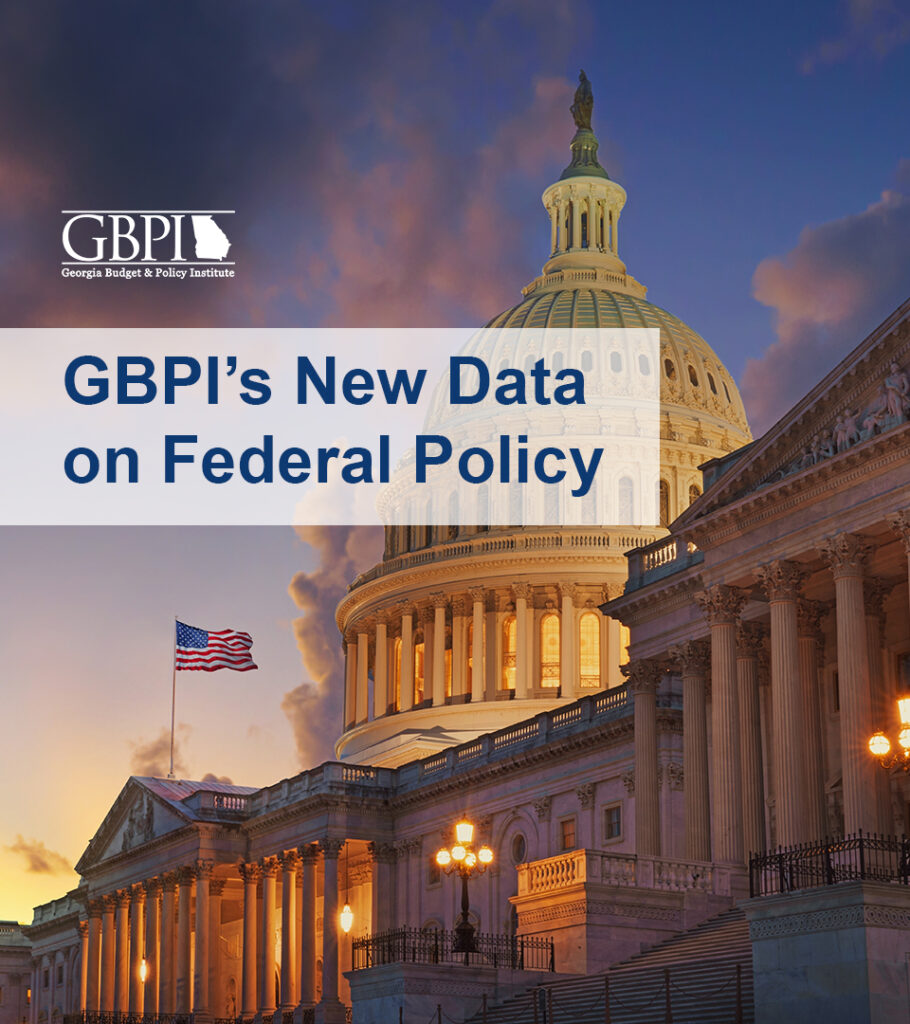Congress passed a $2 trillion relief package that includes provisions covering health care, payments to American families and support for businesses. The Coronavirus Aid, Relief and Economic Security (CARES) Act also included several provisions related to higher education, affecting colleges and universities, faculty, staff and students.
Georgia Colleges Expected to Get $378 Million Through Education Stabilization Fund
The CARES Act includes $14.2 billion for the Higher Education Emergency Relief fund to help institutions of higher education weather the costs associated with COVID-19. Funds will be available through September 30, 2021. Georgia colleges could get an estimated $378.3 million. No state application is required. The Department of Education will allocate funding directly to colleges based on a formula driven by full-time-equivalent student enrollment, weighted towards numbers of Pell-eligible students.
The legislation instructs colleges to prioritize continuing to pay faculty and staff. Colleges can also use emergency relief funds for costs associated with moving instruction online. Colleges must also use at least 50 percent of the money for student emergency grants. These grants can support any expense that is part of the calculated cost of attendance, including food, housing, course materials, technology, health care or child care.
An additional $3 billion is available for governors to apply for emergency funds for school districts, colleges or universities through the Emergency Education Relief Fund. Georgia is estimated to get $106.2 million total for K-12 and higher education. These funds are to meet immediate needs. The application will be available by the end of the month, and states will get funds within 30 days of application. Grants will be based on states’ populations ages 5-24 and elementary and secondary school enrollment numbers.
Maintaining State Funding for Higher Education Required for Emergency Funds, But Can Be Waived in Face of Revenue Shortfalls
The federal relief package specifies that states applying for emergency funds must keep state funding for colleges and universities and need-based financial aid for fiscal years 2020 and 2021 at the same levels as average spending the past three fiscal years. This is to prevent states from using federal money to supplant available state dollars. However, it is difficult to see how Georgia will be able to meet this requirement for FY 2021 as the state heads into a sharp economic downturn that will likely force deep budget cuts. In the case of revenue shortfalls, the legislation has an “escape clause” that says the maintenance of effort requirement may be waived “for the purpose of relieving fiscal burdens on States that have experienced a precipitous decline in financial resources.”
Temporary Student Loan Relief for Many, But Not All, Borrowers
The Department of Education suspended all repayments for federally held loans through September 30, 2020. Students do not have to do anything to get this temporary postponement, known as loan forbearance. No additional interest will accrue during this six-month forbearance period, and non-payment will not affect credit scores.
A caveat is that most but not all federal student loans are “federally held,” meaning the federal government is the entity that owns the loan. Loans provided through the Federal Family Education Loan (FFEL) Program, which ended in 2010, and Perkins Loans, which ended in 2017, do not qualify. These loans are guaranteed by the federal government but are owned by private lenders and colleges. Private loans also are not included. Students who think they may have FFEL, Perkins or other loans that may be excluded should contact their servicers.
The federal government has also taken action to provide relief to borrowers beyond the loan forbearance. For example, the Department of Education announced that they would stop wage garnishment for student borrowers who were in default on their loans. Moreover, if current college students are unable to complete the semester due to impacts of COVID-19, the semester will not count in any applicable time limits on federal student loans.
State actions have further supported student loan borrowers. For example, the Georgia Student Finance Commission suspended payments on state-funded loans for 60 days. One percent interest on state loans will still accrue. Suspension of interest would require the governor or legislature’s action.
Students Can Continue to Receive Federal Work Study
Colleges can continue to pay students with part-time jobs through the Federal Work Study program, even if campus closures have interrupted students’ ability to work. About 11,600 students in Georgia private and public colleges and universities participate in Federal Work Study.
Pell Grant Rules Relaxed
The Department of Education will relax some financial aid rules around the federal need-based Pell Grants to accommodate disruptions because of COVID-19. If a student cannot complete a semester due to COVID-19, the Pell Grant received for the semester will not count against the student’s lifetime Pell limit. Also, if a student withdraws from courses or drops to part-time from full-time status, they will not have to pay back part of their Pell Grant. Lastly, colleges can exclude attempted and incomplete hours in Satisfactory Academic Progress calculations required for financial aid eligibility.
More Flexibility in Federal Funds to Meet Short-Term, Emergency Needs
Both students and colleges may have experienced unexpected costs due to sudden campus closures. CARES allows greater flexibility of dollars through the federal Supplemental Education Opportunity Grants (SEOG) and Federal Work Study programs to be reallocated to student emergency aid. Congress also waived requirements to calculate financial need for recipients; this will provide colleges greater flexibility and speed to disburse funds as needed. Georgia colleges get about $18.6 million through SEOG and $26 million through Federal Work Study, though much of those funds may already have been awarded for the current academic year.
Colleges Will Likely Need More Assistance as Recession Deepens
Federal funds in the Higher Education Emergency Relief fund should help colleges survive the immediate emergency, but the medium- and long-term prospects for college budgets is unclear. Colleges are refunding millions of dollars to students for housing, dining and other fee-supported services. Though this is the right decision for students, it will hurt college budgets. Public colleges that rely on state funding and tuition dollars will likely see both revenue sources significantly weakened in the next fiscal and academic year. During previous recessions, student enrollment tended to increase, but the nature of this public health emergency may have the opposite effect on many colleges, especially those that rely on in-person events to recruit and enroll students.
Even before the pandemic, higher education funding was vulnerable to recession. The state does not have a constitutional obligation to provide higher education, unlike K-12 education, nor is it a shared responsibility with the federal government like many health programs. A significant portion of college budgets come from tuition dollars paid from families’ pockets.
Higher education remains as important as ever. Individuals with postsecondary educations tend to have better employment outcomes during economic downturns, and almost all new job growth after the recession went to workers with at least some postsecondary education or training. To facilitate job recovery and continue a high-quality, long-term investment in our communities’ and students’ futures, more assistance will likely be needed. After all, Georgia colleges have educated and trained many of the doctors, nurses, researchers, public health experts and other leaders we are all relying on now to keep our communities safe and well.








